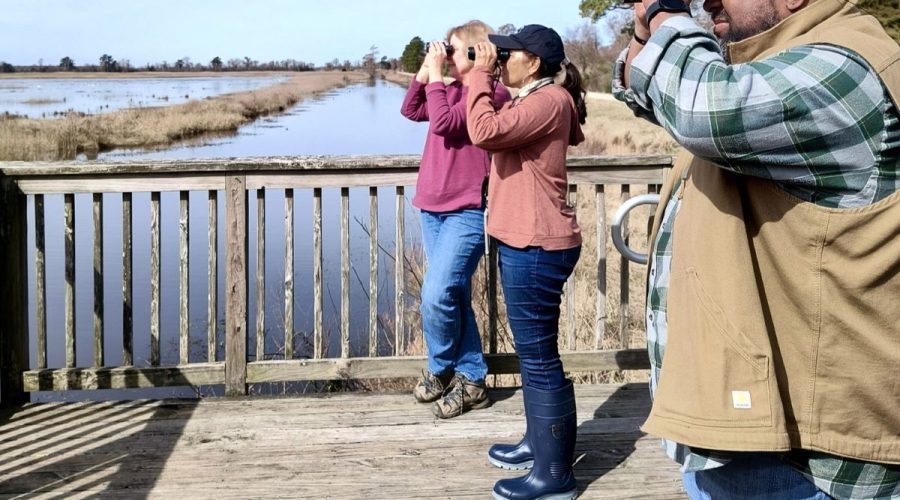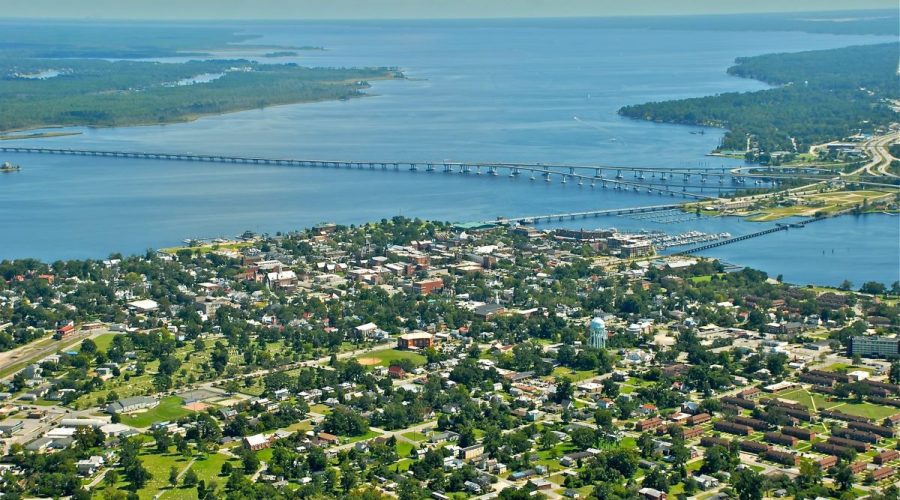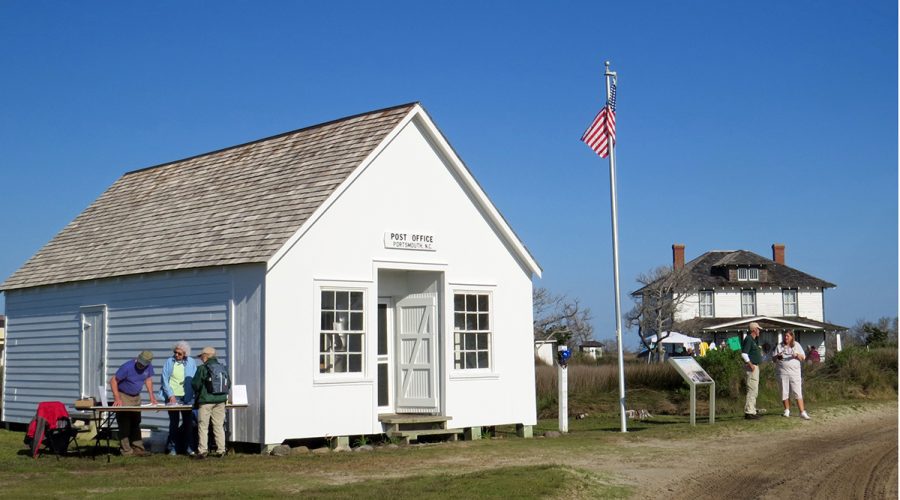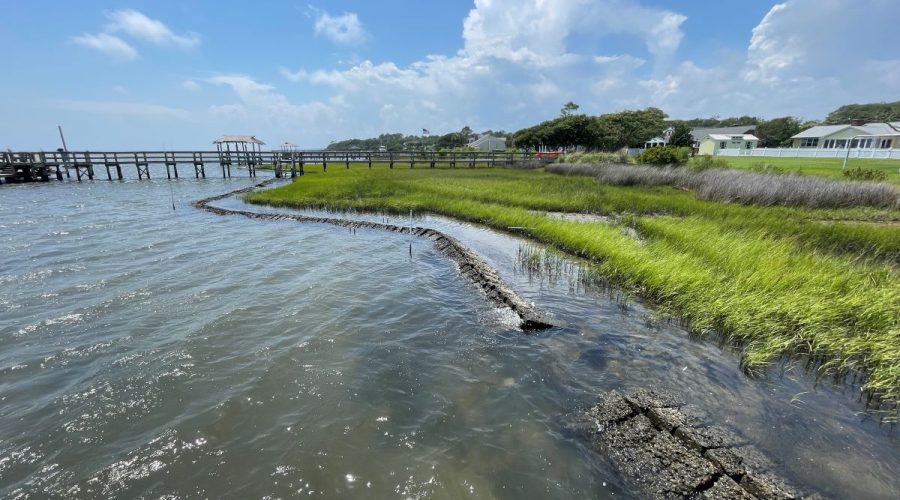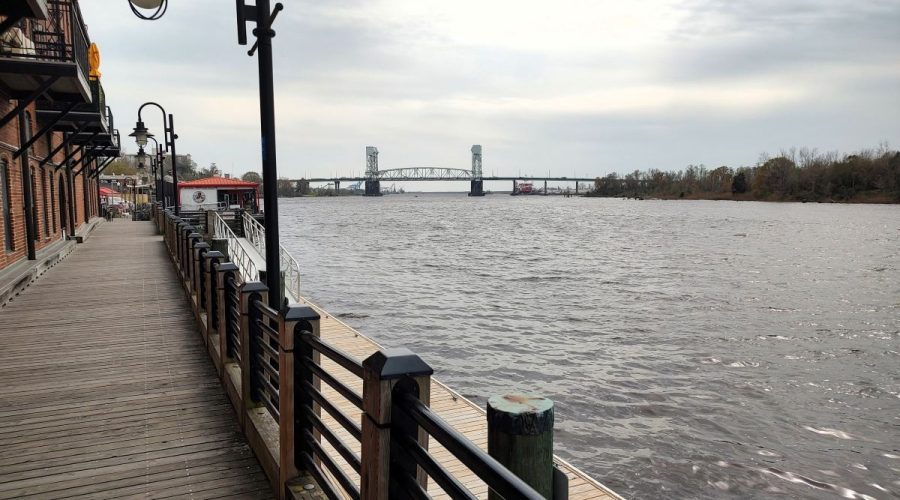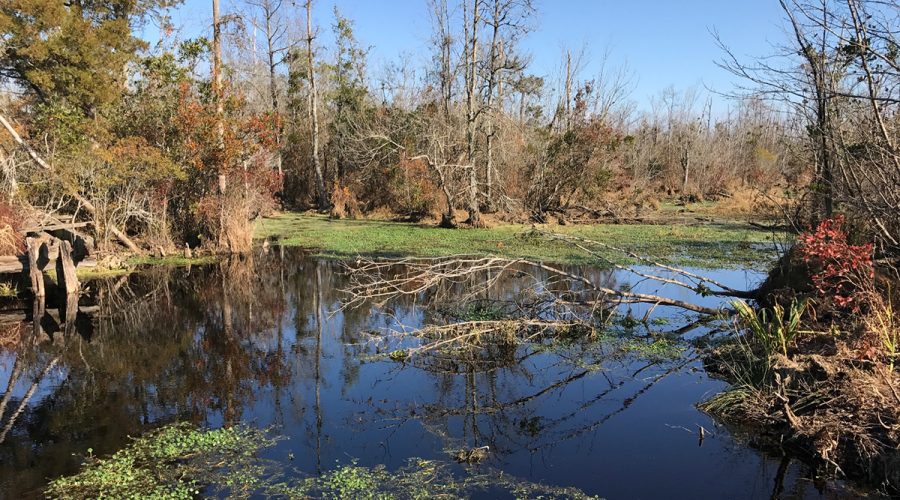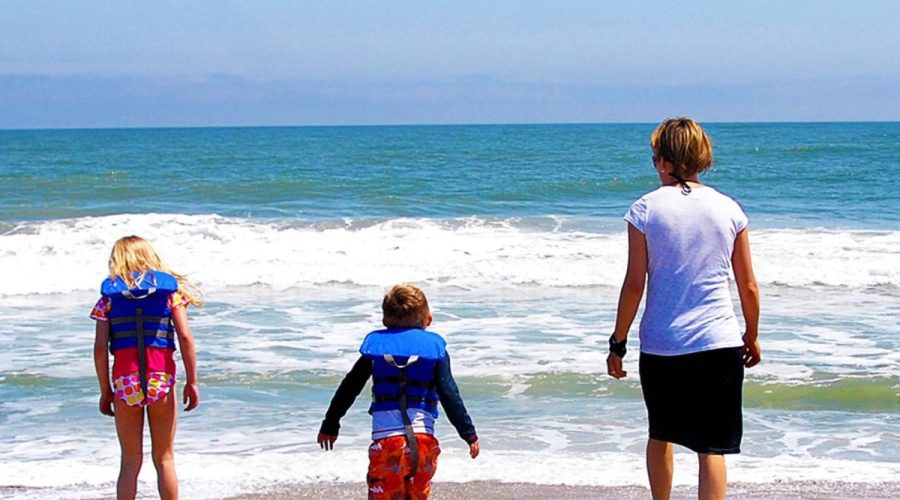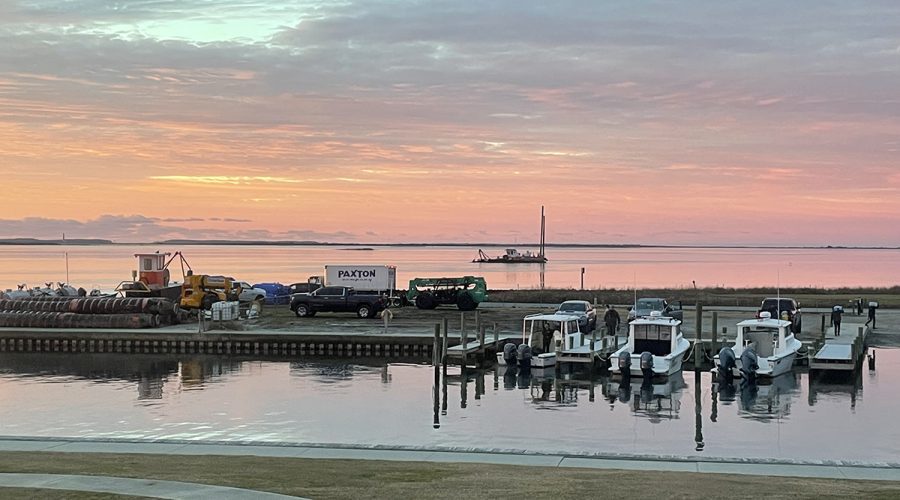The newly released children’s book is about the history of Jockey’s Ridge and the Baum family who spearheaded the campaign to save the landmark 50 years ago.
Timbermill Wind turbine parts en route to Chowan County
Massive wind turbine components that arrived recently at the state port in Morehead City are on their way to Timbermill Wind’s 6,300-acre, 45-turbine onshore energy facility currently under construction near Edenton.
Inclusive space: Group empowers women in conservation
ForestHer NC has been dedicated since 2019 to offering programming on forest stewardship in a comfortable space for marginalized genders.
Ocracoke festival aims to keep alive carving traditions
Organizers are putting the final touches on the sixth annual Ocracoke Island Waterfowl Festival scheduled for the third weekend of April in the Ocracoke School gymnasium.
State transportation planning conference heads to New Bern
The 2024 state MPO conference theme is “Gridlock to Green Lanes Transforming Urban Transportation.”
Homecoming: Portsmouth Island descendants set to gather
The Friends of Portsmouth Island and Cape Lookout National Seashore are expecting hundreds for the event that happens every two years and this year includes a celebration of the 1894 U.S. Life-Saving Station here.
EPA overstepped its authority in PFAS order: Appeals court
The 5th Circuit vacated the Environmental Protection Agency’s attempt to stop a Texas-based firm from creating per-and-polyfluoroalkyl substances as a byproduct of its plastic containers manufacturing process.
Academy aims to make living shorelines more accessible
The N.C. Living Shoreline Academy at Carteret Community College is translating years of research into practical application for waterfront property owners and marine contractors.
Sinking land could exacerbate coastal flooding: Study
As sea levels rise and flooding increases, land subsidence will make the problem even worse in some coastal cities, new research finds.
Cape Fear Creek Week to put focus on region’s waterways
Cape Fear Creek Week, March18-24, is a multi-organization educational effort to connect New Hanover and Brunswick counties with its creeks, rivers, and streams.
State’s climate plan adds carbon sequestration component
State environmental officials’ new, “different approach” to reducing greenhouse gas emissions puts the spotlight on the climate benefits natural and working lands conservation brings.
National Invasive Species Awareness Week highlights risks
Biologists, extension agents and foresters here on the North Carolina coast say National Invasive Species Awareness Week, Feb. 26-March 3, is an important time to learn how to limit the spread.
Administration unveils $3B plan for cleaner air near ports
EPA Administrator Michael Regan announced the new federal program’s launch Wednesday at the N.C. Port of Wilmington.
Most coastal state parks report visitor growth in 2023
North Carolina State Parks recently announced that attendance grew by 4% statewide last year, with most of the nine sites on the coast contributing to that growth.
Ballance to bring Ocracoke history to Core Sound’s present
“Ocracokers” author and native Alton Ballance is to talk about the isolated island’s growth from a fishing village to a tourist destination.
Dredge firm to begin $6.9M project in Cape Lookout waters
Louisiana-based Next Generation Logistics is contracted to open channels to the national seashore with suitable material to be used for beach nourishment to protect Cape Lookout Lighthouse and nearby historic structures.



